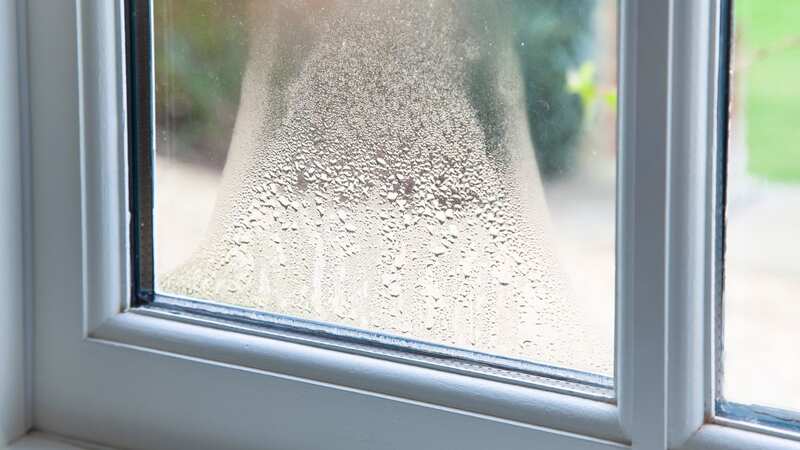

There are several ways you can tackle condensation in your home without having to buy a dehumidifier.
Condensation can be a major issue in homes during the winter months. It occurs when the warmer air inside our homes hits a cold surface, such as a window, and water droplets then form on it.
Although it may only seem like a relatively small issue it can lead to bigger problems for your home - and even your health. One of the main issues caused by condensation is black mould grows in damp environments and if left untreated it can cause health issues as it is classed as an allergy.
One of the most common ways to tackle condensation is through a dehumidifier - although these can be quite pricey. However, there are other ways of combatting it. Here we round up a few cheaper alternatives you can turn to to tackle and prevent mould in your home.
Use pan lids when cooking
One of the main things you need to know when preventing condensation in your home is to remove the moisture from the air, so ventilation is key. One of the simplest ways you can do this is by using a lid to cover your pans when cooking.
 Martin Lewis issues 8-week warning to phone users ahead of huge price hikes
Martin Lewis issues 8-week warning to phone users ahead of huge price hikes
This reduces the moisture which comes out when you are boiling a pan. You should also always stick on your extractor hood if you have one - or an extractor fan if you have one installed. These are both designed to help reduce moisture created when cooking. Remember, you should always leave your extractor fan/hood on for a little while after cooking as moisture can still be in the air even after you have finished - it is recommended to leave them on for around 10 to 15 minutes afterwards.
Close kitchen and bathroom doors
Bathrooms and kitchens are the worst main sources of the water vapour that creates condensation on windows throughout your home. When cooking food, boiling the kettle, or taking a bath or shower, you should always try and shut the doors to prevent the moisture from spreading into colder rooms of your home and causing condensation.
Again with this one, you should always try and use an extractor fan at the same time. This is especially important if the temperature in your home is low.
Dry clothes outdoors
This is a hard one during the winter months, but you should as much as possible try and dry your clothes outdoors to prevent excess moisture from building up in your home. As wet clothes dry, the moisture evaporates into the warm air and causes condensation when it hits a cold window.
If you can't dry your clothes outdoors then you should try and keep them in a bathroom with the door closed and windows open until they are fully dry - turning on the extractor fan can also help remove any excess moisture.
Heat your home to a consistent temperature
One of the best ways to prevent condensation in your home is to maintain a steady temperature throughout it. Having a constant internal temperature will level out the temperature of surfaces in the house and reduce the likelihood of condensation.
Alongside this, you should also try and make your home as energy efficient as possible by ensuring you have insulated walls and double-glazed windows installed so the heat doesn't escape from the property.
Move furniture away from walls
Most Brits have their furniture pushed against walls as to give them more space in their homes however you should avoid putting furniture too close to external walls as it affects airflow and creates pockets. These pockets can often see a build up of dampness which can develop into mould.
Most commonly, the recommendation is to keep your furniture at least 50mm away from the surrounding walls. You should also try and ensure that wardrobes are placed against internal walls in your bedroom as these will be less cold than external walls and less likely to cause damp.
Bowl of salt by the window
The most common place to see condensation is by windows and window sills or ledges. To prevent this, one popular "life hack" which often makes the round on social media is putting a bowl of salt by the window.
 Boots annual 70% off sale is returning with some deals already available
Boots annual 70% off sale is returning with some deals already available
Salt has absorption properties, which means that it can bind to moisture and according to experts, salt can remove excess moisture in the air, therefore reducing the amount of condensation on your window. This may be a helpful solution for people who have a slight damp issue in their home however those with more serious problems should really look at other - more rigorous - solutions.
Have you got a story to share? We want to hear all about it. Email us at yourmirror@mirror.co.uk